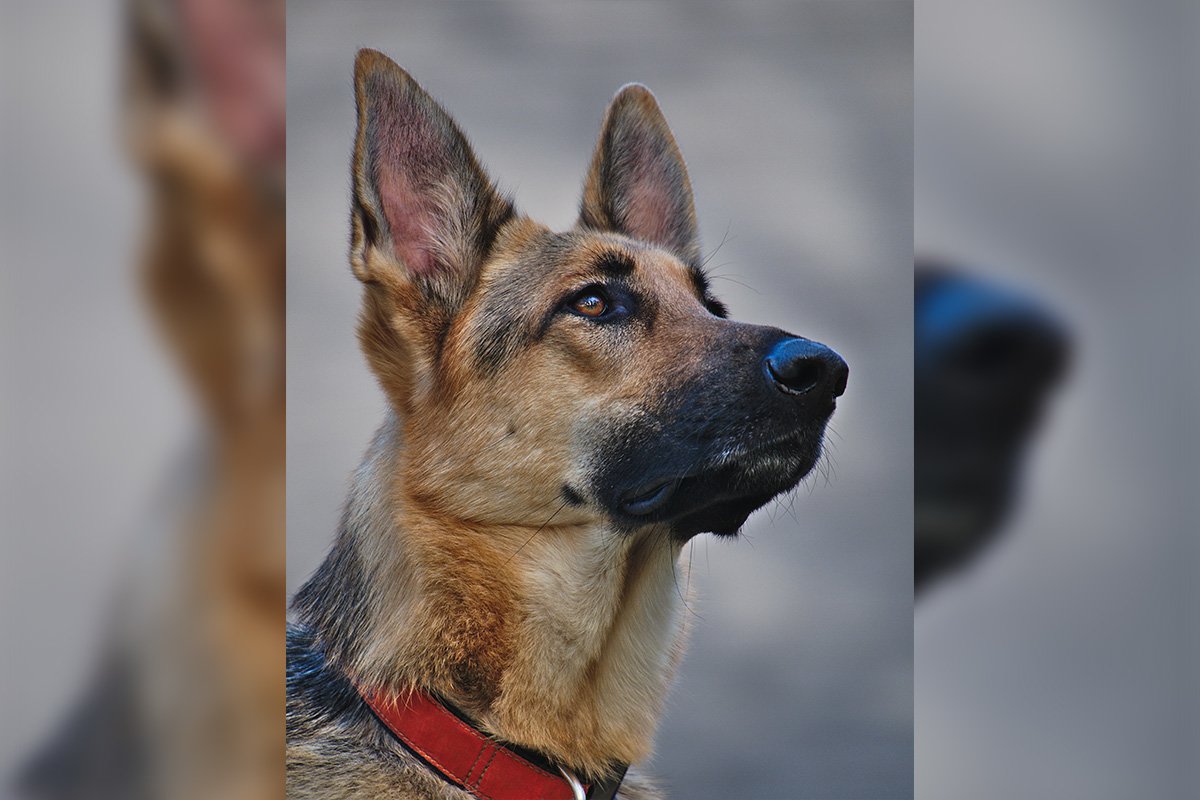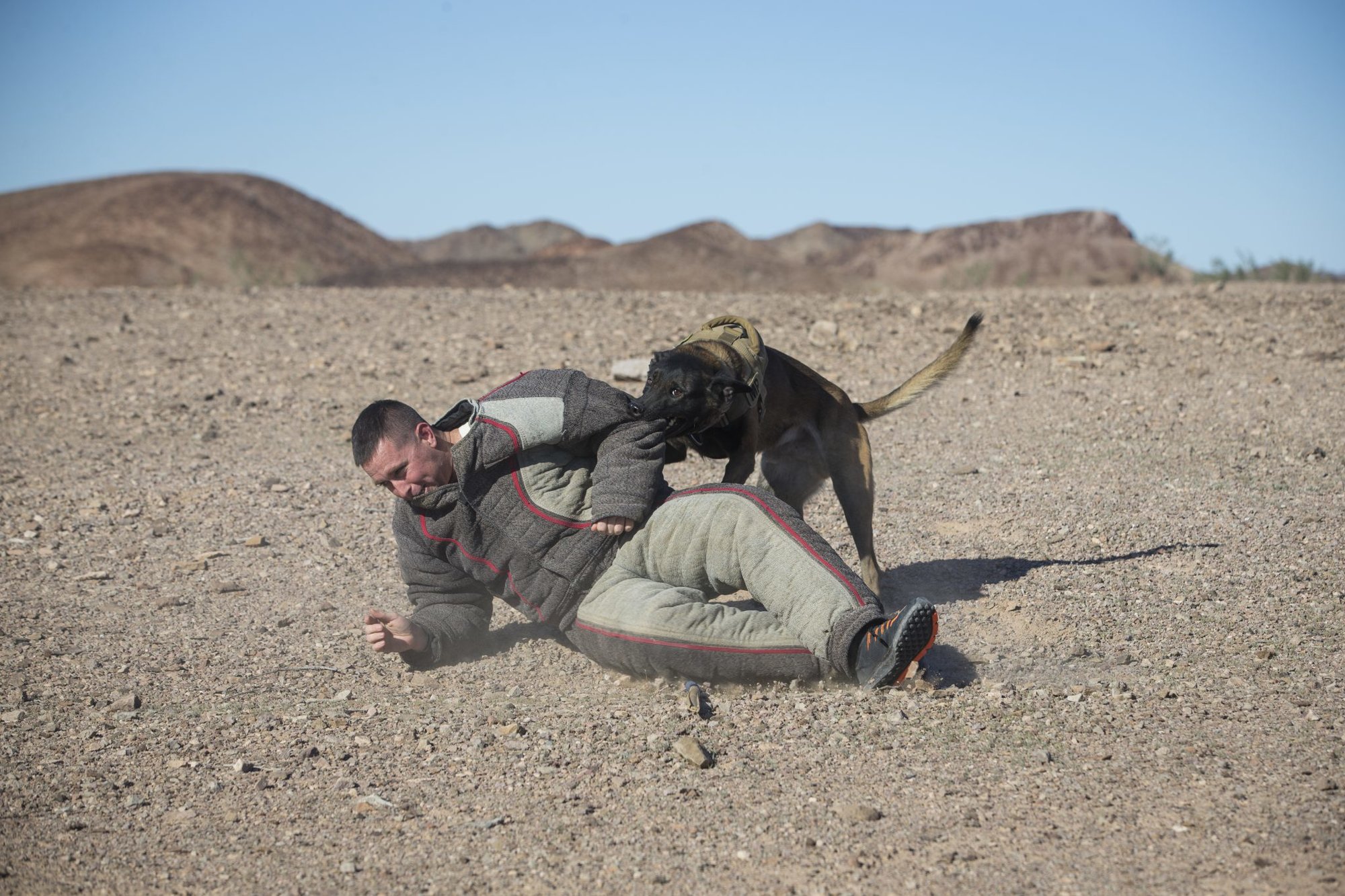Special Operations K9 Recounts Downward Spiral in Memoir ‘A Good Boy No More’

A former special operations K9 has written a book detailing his cocaine-fueled descent into darkness. Photo courtesy of Unsplash.
Often considered the last true quiet professionals of the United States military, special operations K9s generally never talk about the things they have done and seen in the line of duty. So when retired Staff Sgt. Comet published his tell-all memoir earlier this month, he knew it would cause a big splash among his old comrades at the 3rd Special Forces Group.
“They didn’t even know I could formulate sentences,” Comet told Coffee or Die Magazine, “let alone write a book.”
What’s more, Comet didn’t sugarcoat anything. The memoir, titled A Good Boy No More, is a gritty, unflinching depiction of life as an elite four-legged commando, as well as a cautionary tale about the dangerous allure of battlefield glory. Comet, who earned a total of five Purple Hearts between his 15 deployments to Iraq and Afghanistan, recounts his gradual transformation from a good boy to a very bad boy with a terrible drug habit and a propensity to chase mailmen around just for fun.
“It all started after a three-month rotation to the Panjshir Valley,” said Comet. “I was already half drunk by the time we landed back at Bragg and the first thing I did when I got off the bird was scoot my ass across Sergeant Major’s grass. That was my first mistake.”
Comet received a Barkticle 15 and lost a whole month of squeaky toy privileges as a result of his actions. He had no way of knowing then that the brown streak he left on the Sergeant Major’s grass that day marked the beginning of a long downward spiral that would ultimately result in his incarceration.

Despite his handler’s best efforts, Comet eventually slipped his collar and went on a weeklong rampage during which he allegedly bit four mailmen, held a squirrel hostage, and traded a pair of night vision goggles for cocaine. Comet recalls that after doing the cocaine, he called the squirrel’s family and demanded a $1 million ransom. Then a SWAT team showed up. For Comet, being zip tied and thrown in the back of a paddy wagon was a big wakeup call. He decided to turn his life around.
As punishment, Comet was sent to his kennel and during this time he sobered up, found puppy Jesus, and decided that when he was released he would tell his story in the hopes of helping other military working dogs see that drugs aren’t the solution to their problems. Since his release, he has also done several TED Talks.
“If I can keep just one other military working dog from going down a similar path, I’ll know it was all worth it,” Comet said before his ears perked up because he thought he heard someone say the word “outside.” Then he added: “Sorry, I must be hearing things. I’m pretty high.”
A film adaptation of Comet’s story is currently in the works with Chris Pratt set to play the role of Comet and Danny DeVito in talks to play Munchkins the squirrel.
Satire disclaimer: This article is a work of fiction. It’s not real and the events depicted in this article did not happen. The photos are of random dogs that are neither authors nor cocaine addicts … we hope.
Read Next:

Eric Miller is a former Army Combat Medic from Parkersburg, West Virginia. He holds a bachelor’s degree in history and has worked with homeless populations and veteran services throughout the state. He is an avid outdoorsman and has recently become interested in woodworking.
BRCC and Bad Moon Print Press team up for an exclusive, limited-edition T-shirt design!
BRCC partners with Team Room Design for an exclusive T-shirt release!
Thirty Seconds Out has partnered with BRCC for an exclusive shirt design invoking the God of Winter.
Lucas O'Hara of Grizzly Forge has teamed up with BRCC for a badass, exclusive Shirt Club T-shirt design featuring his most popular knife and tiomahawk.
Coffee or Die sits down with one of the graphic designers behind Black Rifle Coffee's signature look and vibe.
Biden will award the Medal of Honor to a Vietnam War Army helicopter pilot who risked his life to save a reconnaissance team from almost certain death.
Ever wonder how much Jack Mandaville would f*ck sh*t up if he went back in time? The American Revolution didn't even see him coming.
A nearly 200-year-old West Point time capsule that at first appeared to yield little more than dust contains hidden treasure, the US Military Academy said.












